International
From crowded tubes to pedal power, London’s COVID transport challenge

LONDON (Reuters) – The crowded daily commute in London has long been a source of misery for millions. But getting to work will be even more of a challenge following Britain’s coronavirus lockdown.
Capacity on the transport network in one of the world’s biggest financial hubs has been reduced by 85% to comply with social-distancing rules, protecting commuters by preventing them cramming into trains, the London Underground and buses.
Everyone using public transport must also now wear a face covering.
As the lockdown restrictions are gradually eased, many now face the quandary of how to reach the City of London, Canary Wharf and other business areas both quickly and safely.
“The COVID crisis is making us have to radically rethink the way we move around our city, how transport operates,” said Will Norman, the London mayor’s commissioner for walking and cycling.
It’s a crucial issue. Even before the coronavirus outbreak, London faced increased competition for the title of Europe’s most important financial centre from cities such as Paris and Frankfurt because it has quit the European Union.
“Forty years of public policy about transport has gone into reverse,” said Tony Travers of London School of Economics. “This is a big existential issue for cities.”
Even a small increase in the number of car journeys would lead to gridlock, Norman warned.
Before the pandemic, up to 5 million people a day packed onto the London Underground and 1 million arrived by train.
After working successfully from home during the lockdown, some may continue doing so after all restrictions are lifted. Others will be considering alternative ways to get to work.
Bikes, by foot or boat?
London authorities are adding new routes for cyclists and pedestrians, bicycle sales are soaring and boat operators are considering increasing their services on the River Thames which runs through the city.
Bike sales tripled in March and April compared to last year, said Terry Green of the Brixton Cycle co-operative in south London.
“Every time we order bikes, they just go straight out,” he said.
But Greater London is much larger than financial centres such as Hong Kong and New York, and is widely seen as less cycle-friendly than many other cities.
The number of cycle journeys has risen by 160% since 2000, following the introduction of cycle “superhighway” dedicated paths, but still accounted for only 2.5% of journeys in London before the pandemic, according to Transport for London, which is responsible for the transport system in Greater London.
“Even if cycling quintupled, which is very unlikely, or if it doubled or tripled, you’re talking about making a tiny inroad in the amount of travel by railway,” Travers said.
Distance is a problem for many — 2015 data from the Greater London Authority put the average daily commute of people working in London at 11.2 miles (18 km).
Simon Munk, a campaigner for the charity London Cycling Campaign, called for a huge network of cycle roads reaching into outer London “so that people feel comfortable riding from their home to work.”
Tim Schwanen, Professor of Transport Studies and Geography at the University of Oxford, said the high cost of living in central London meant many workers with lower-paid jobs, who are less likely to cycle, live further out.
“Good infrastructure alone is not enough to get many people to change their behaviour,” he said.
Commuters already have the option of taking a passenger boat on the Thames, emulating King Henry VIII, whose preferred route between palaces in the 16th century was along the river.
Each year, more than 4 million people use Thames Clippers passenger boats, about 40% of them to commute.
Sean Collins, chief executive of Thames Clippers, said the company was considering putting partitions between seats to raise capacity while adhering to social distancing. He also expects to add services to fit newly staggered working patterns.
“It would make sense for us to provide additional services into the day parts where we would normally have ceased operating,” Collins told Reuters.
Reporting and photo: Reuters
International
Nika Zorjan’s ‘V Postelji’ music video showcases timeless beauty of Maldives

Released just three weeks ago, Nika Zorjan’s latest music video, ‘V Postelji’ (meaning “In Bed”), has captivated audiences with its stunning cinematography set against the breathtaking backdrop of the Maldives. Directed by videographer Niko Karo, who accompanied Nika to film the video, the project was organised by Moji Maldivi, an agency based in Slovenia dedicated to promoting the Maldives as a premier holiday destination in Balkan region.
The video beautifully captures Nika strolling through serene pathways shaded by iconic coconut palm trees at Villa Park, later walking along the sun-kissed beaches of Villa Nautica, and finally enjoying the golden sunset on a bed at the beach of Furaveri Maldives. Each scene showcases the natural beauty and tranquil ambiance of the Maldives, enhancing the emotional depth and visual splendour of the music video.
Nika Zorjan, renowned as a Slovenian pop star and Eurovision contestant, has also gained fame for her cover songs, including her most popular rendition of Sia’s Cheap Thrills, which has amassed nearly 50 million views on YouTube, with over 60 million total views on the platform. “Shooting a video in the Maldives is heavenly,” she added. Filmed in one of the world’s most captivating tourist destinations, the Maldives serves as more than just a scenic backdrop; it becomes an integral part of the video’s narrative.
V Postelji not only showcases Nika Zorjan’s musical prowess but also pays homage to the Maldives’ timeless allure and cultural richness. The video has resonated deeply with audiences, garnering praise for its artistic vision and the mesmerising beauty of the Maldivian landscape. The lush greenery, crystal-clear waters, and pristine beaches depicted in the video create a sense of paradise that complements the song’s evocative lyrics.
As viewers continue to immerse themselves in the captivating visuals and emotive melodies of V Postelji, it reinforces the Maldives’ reputation as a destination where natural beauty and tranquility converge effortlessly. Nika Zorjan’s collaboration with Niko Karo underscores their shared appreciation for the Maldives’ serene ambiance and its ability to inspire creativity and emotional expression. This partnership, facilitated by Moji Maldivi, highlights the agency’s dedication to showcasing the Maldives as an unparalleled holiday destination to the Balkan market.
Featured
Emirates undertakes largest known fleet retrofit project
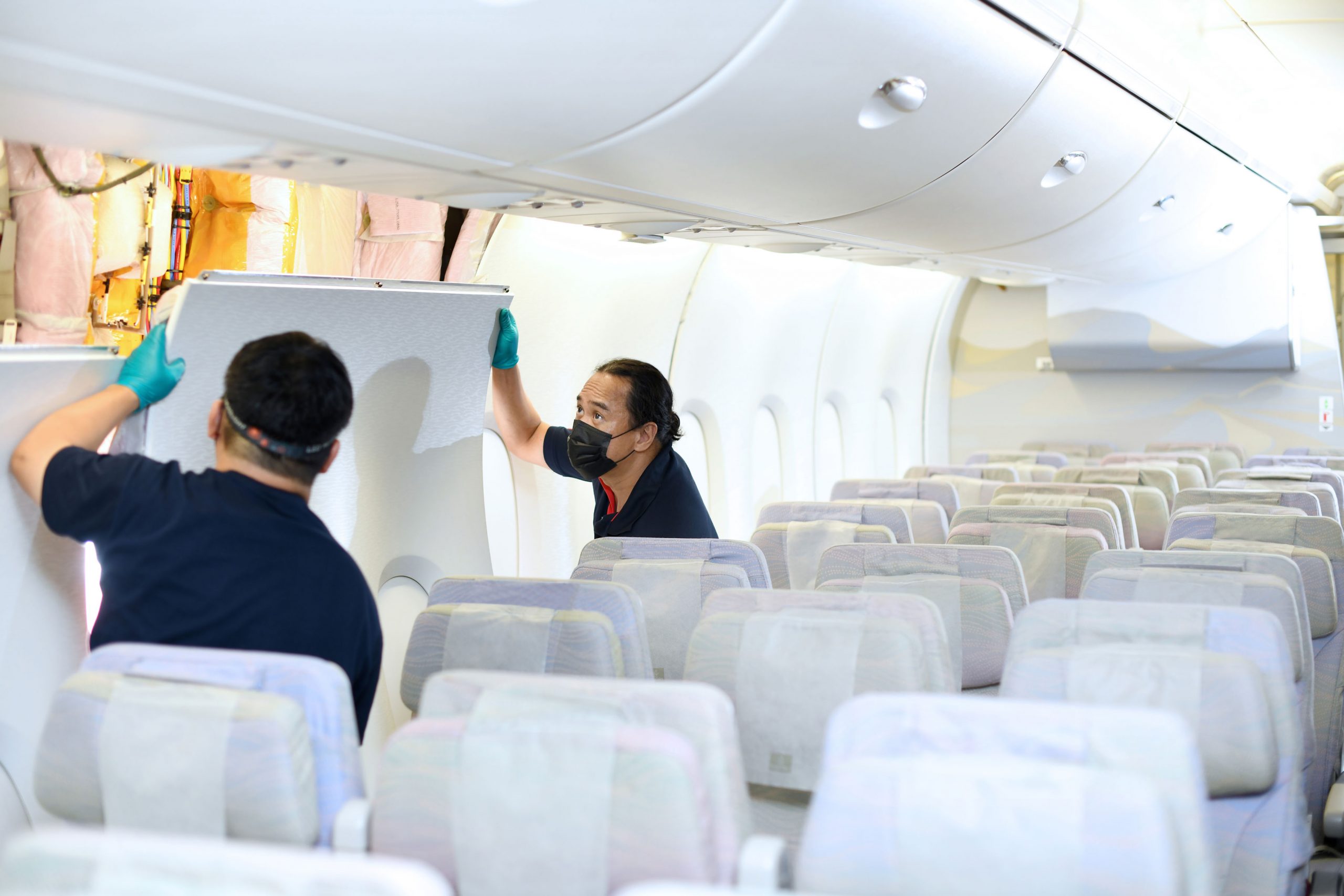
Emirates has kick-started its plans to upgrade the entire interior cabins of 120 Airbus A380 and Boeing 777 aircraft – two of the largest commercial aircraft types in service today.
This ambitious project, representing a multi-billion dollar investment to ensure Emirates’ customers “fly better” for the coming years, officially commences in November and is managed entirely by Emirates’ Engineering team.
The target is to completely retrofit four Emirates aircraft from start to finish every month, continuously for over 2 years. Once the 67 earmarked A380s are refreshed and back in service, 53 777s will undergo their facelift. This will see nearly 4,000 brand new Premium Economy seats installed, 728 First Class suites refurbished and over 5,000 Business Class seats upgraded to a new style and design when the project is complete in April 2025.
In addition, carpets and stairs will be upgraded, and cabin interior panels refreshed with new tones and design motifs including the iconic ghaf trees which are native to the UAE.

No other airline has handled a retrofit of this magnitude in-house, and there’s no blueprint for such an undertaking. Therefore Emirates Engineering teams have been planning and testing extensively, to establish and streamline processes, and identify and address any possible snags.
Trials began on an A380 in July, where experienced engineers literally took each cabin apart piece-by-piece and logged every step. From removing seats and panelling to bolts and screws, every action was tested, timed and mapped out. Potential impediments to completing the installation of Emirates’ new Premium Economy Class or the retrofit of the remaining three cabins in just 16 days were flagged and documented for expert teams to review and address.
As part of the programme, new purpose-built workshops will be set up at Emirates Engineering to repaint, re-trim and re-upholster Business and Economy Class seats with new covers and cushioning. First Class suites will be carefully disassembled and sent to a specialised company to replace the leather, arm rests and other materials.
From the trials, Engineers discovered several unexpected solutions for instance: that existing food catering trucks could be easily repurposed to move parts destined for refurbishment from the aircraft to the workshop for their refresh, as these vehicles had doors of the right width and offer sufficient space.
Until the retrofit programme starts in earnest in November, a cross-disciplinary team has been assembled to regularly review the planning process, address any issues, and track updates on various aspects of the project such as procurement, staffing, and training.
Emirates’ new Premium Economy cabin class, which offers luxurious seats, more legroom, and a service to rival many airlines’ business offering, is currently available to Emirates customers travelling on popular A380 routes to London, Paris, Sydney. More customers will be able to experience the airline’s new Premium Economy cabins starting from year end, as the retrofit programme picks up momentum.
Featured
Eleanor helps over 30 Maldives hotels elevate guest services

Eleanor has been named as one of the top 10 concierge software providers globally.
Based on accurate, timely reviews from real users, the HotelTechAwards rank the world’s best hotel software firms and products and it also provides hoteliers direct access to a growing network of hotel technology professionals and decision-makers.
“The guest experience is the cornerstone of our platform. Our unified resort wide solution, Eleanor, has been built for resorts off the back of many years working in the industry and addresses the needs of both Sales and Marketing departments and perhaps just as importantly, the operational requirements of the team on the ground at the property. The days of resorts working with disjointed systems are now behind us,” says Darren Caple, co-founder and CEO.
“We are on a mission to make the guest’s resort experience as easy and as frictionless as possible. Whereas traditional providers in the market have come at this purely from a guest communication perspective, our background in resorts has allowed us to combine this basic requirement with the streamlining of operational processes. The result is truly a resort wide solution that removes the need for countless different systems to be deployed.
Eleanor allows resorts to deliver consistent, superior service levels to guests across all stages of their journey with contactless features helping to alleviate sensitive touch-points in the post pandemic period. More than 30 properties in the Maldives use our Eleanor platform to help butlers and guest services elevate the guest experience. These properties are seeing an increase in incremental revenue by over 30% and operational efficiencies of 600+ man hours per month. We are also beginning to roll out the platform in some Caribbean properties!”
Eleanor is making waves in the hospitality industry by pushing the conventional limits of what a resort guest app can achieve through its unique ability to facilitate direct bookings for services and activities. The traditional ‘request to book’ feature that is common amongst almost all other hotel apps is removed by a power booking and operational platform sitting at the heart of the solution that covers all the resorts’ departments. It’s this module which realises enormous operational benefits and insights for the resort.
“We, at Eleanor, are humbled and honoured that our clients have provided such positive reviews. Feedback from our clients, partners and hoteliers are incredibly valuable for us and we will continue to improve our offering and services”, said Caple.
To celebrate this success, Eleanor is currently offering resorts a free one month trial, together with free setup and training and discounted monthly fees.
Eleanor, founded in 2018 and has its headquarters in the United Kingdom. Created from over 15 years of hands-on expertise, Eleanor allows resorts to deliver consistent, superior service levels to its guests across all stages of their journey with contactless features helping to alleviate sensitive touch-points in the post pandemic period. Eleanor also helps to unlock operational efficiencies and boost incremental revenue and guest loyalty.
Hotel Tech Report’s Best Concierge Software 2022 Runner Up, reviewed as a preferred and reliable hotel software product by the global hotelier community.
For more information, visit www.eleanorapp.com.
-
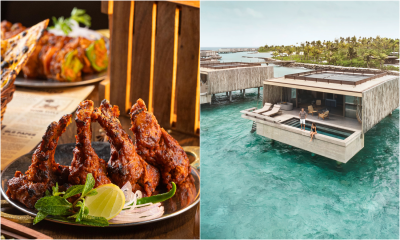
 Cooking1 week ago
Cooking1 week agoPatina Maldives, Khyber unite for Holi festival dining experience
-
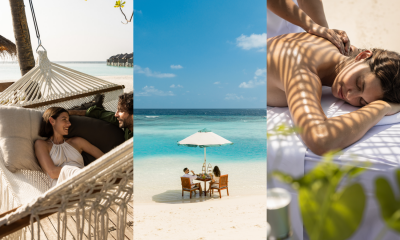
 Featured1 week ago
Featured1 week agoRomantic island experiences await couples at Sun Siyam Vilu Reef
-

 Featured1 week ago
Featured1 week agoCinnamon Hotels & Resorts Maldives launches March flash offer with savings of up to 80%
-
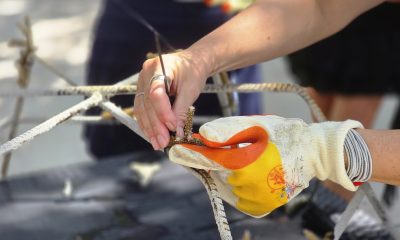
 Action1 week ago
Action1 week agoNoku Maldives strengthens reef protection through coral propagation
-

 News1 week ago
News1 week ago‘Endless Summer’ brings wellness and family escapes to Westin Maldives Miriandhoo Resort
-

 News1 week ago
News1 week agoKandooma champions collaboration as cornerstone of sustainability progress
-

 Featured6 days ago
Featured6 days agoSt. Regis Maldives Vommuli Resort curates timeless Valentine’s experiences with IVAR Jewellery
-
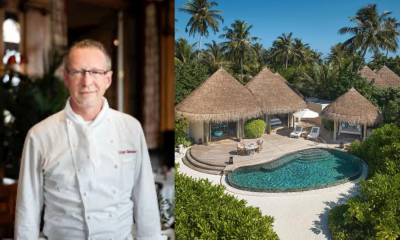
 Drink6 days ago
Drink6 days agoThe Nautilus Maldives hosts Gregor Zimmermann for three-day Easter gastronomic programme









